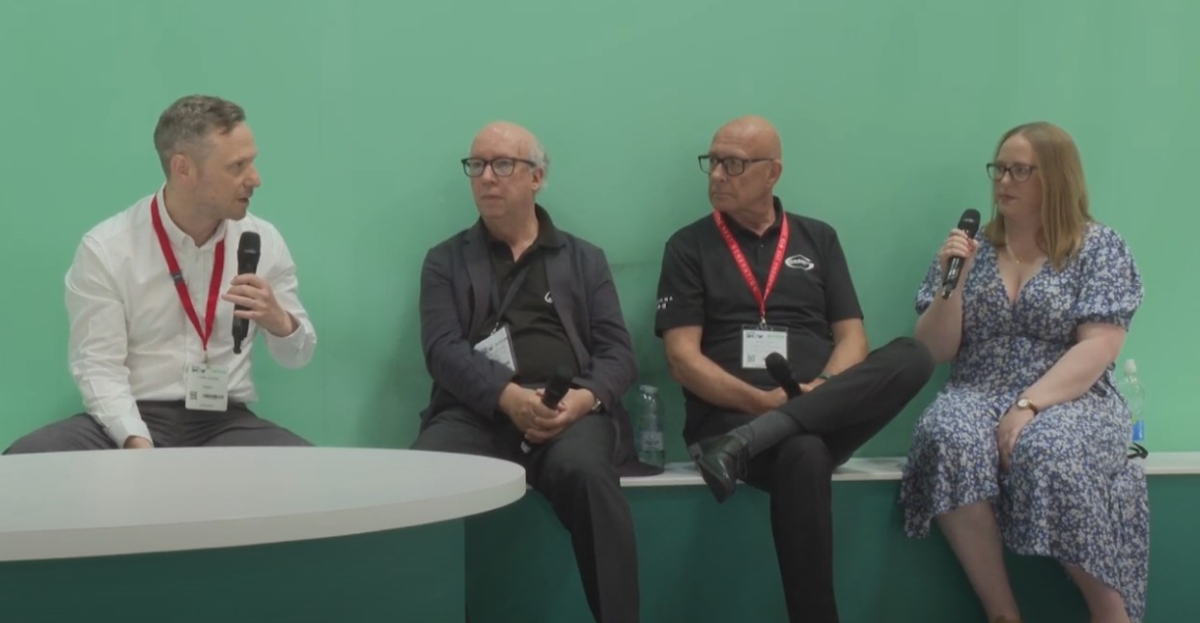Former Prime Minister Rishi Sunak made headlines when he delayed the “ban” on new oil and LPG boiler installations to 2035.
It is generally accepted that the UK will have to adopt a range of technologies to reach net zero, as the weather, housing stock and infrastructure vary around the country.
Heat pumps will no doubt have a part to play, but are there other technologies that help decarbonise off-grid homes and buildings? BioOil, BioLPG, rDME and others have been touted as potential solutions. Chris Goggin, Rinnai, Malcolm Farrow, OFTEC, Neil Sawyers, Grant UK, and Sophia Haywood, Dimeta, take a look.

The conversation started with a lively reaction from Malcolm Farrow, who expressed: “How confusing is the message for a consumer who thinks they’ve got to make a change to a heat pump, and then all of a sudden he’s been given 12 years to continue to fit gas and oil boilers in the existing dwelling. It’s confusing to the manufacturers and consumers. It is completely barking mad.”
Sophia Haywood added: “With the delay in the ban, what we also need is greater policy certainty for liquid gases and liquid fuels. It has been recognised we need a mix of solutions if we want investors to invest a significant amount.”
Shifting focus to consumer education, the panel was asked how best to inform the public. Neil Sawyers emphasised the need for clear policy, clear guidance, and the need for a realistic proposition on the table that covers a whole range. He said: “Hopefully there will be a point where we can discuss hybrids as a stepping stone to get from fossil fuel to renewable technology.”
Chris Goggin stressed the importance that awareness needs to be made naturally, offering options that: “Are practically feasible, economically feasible and technically feasible for all.”
Sophia Haywood added that: “There is a mixture of responsibility here. I don’t think it’s in the hands of one person. From a demand perspective, that’s the government, because they can make demand, they can tell the people x, y and z; there are better and worse ways of doing that. However, there are really key roles in the industry, both the LPG industry and the oil industry and continuing to secure the appetite and growth in that space just as much as the manufacturers.”
The panel then discussed the advantages of renewable energy. Sophia Haywood highlighted the environmental benefits including: “Reduced emissions, you also get the continued same benefits you have on air quality with lower Nitrogen Oxide (NOx) and particulate matter, and also the drop in nature.”
Chris Goggin looked into the variety of types, he said: “There are various different sorts of renewable liquid fuel, but one we are particularly interested in is called HVO – Hydrotreated Vegetable Oil. It’s manufactured mainly from waste and can deliver up to 88% reduction in carbon emission. It is a drop in solution, and you can use it in all existing appliances.”
Malcolm Farrow added: “The thing about biofuels is the availability of the feedstock, so you need to make sure there is enough feedstock for the fuel you’re planning to make. With a fuel like HVO, there have been dramatic increases in production in recent years, and that’s been driven by greater ability to collect the feedstock.”
Sophia Haywood confirms this and stated: “We have seen that in studies lots of work is being done that showcase the feedstock availability is there commercially, or it’s not there yet but it does exist. That’s one of the reasons why we are really interested in waste. At the moment it’s going to landfill which we want to see less of. We are only increasing our waste generation and our recycling is not increasing at the same speed.”
Neil Sawyers advocates for bioliquids as a sustainable, recyclable solution, he said: “The fact that we can renew these fuels and use them over and over again and keep recycling them, actually solves a solution that prevents consumers having to go into fuel poverty, doesn’t have to upgrade any of the systems, and provides an overnight solution that the government just hasn’t switched onto yet.”
